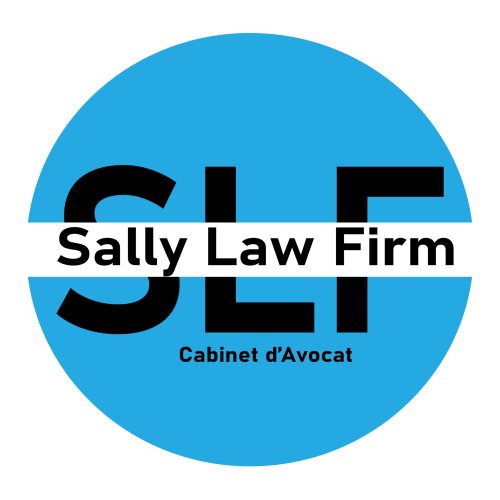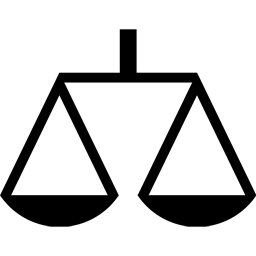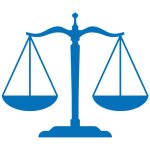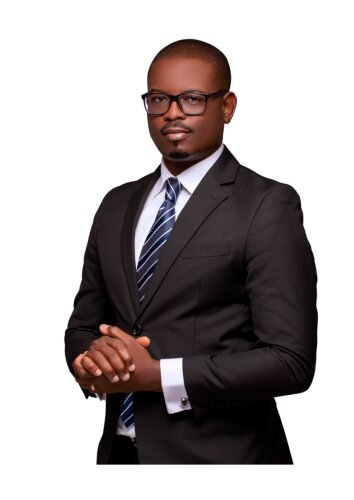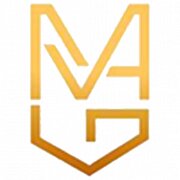Best Restructuring & Insolvency Lawyers in Dakar
Share your needs with us, get contacted by law firms.
Free. Takes 2 min.
List of the best lawyers in Dakar, Senegal
About Restructuring & Insolvency Law in Dakar, Senegal
Restructuring and insolvency law in Dakar, Senegal governs the legal processes applied when companies or individuals face financial difficulties that may render them unable to pay their debts. These laws set out the procedures for rescuing distressed businesses, liquidating insolvent entities, and ensuring fair treatment of creditors and stakeholders. Senegal, being a member of the West African Economic and Monetary Union (UEMOA) and the Organization for the Harmonization of Business Law in Africa (OHADA), follows the Uniform Act on Collective Proceedings for Clearing Debts, which provides a framework for restructuring and insolvency processes across many West African countries, including Senegal. In Dakar, the commercial courts play a pivotal role in overseeing such cases and applying the relevant rules.
Why You May Need a Lawyer
Engaging a qualified lawyer can be essential when facing restructuring or insolvency issues in Dakar. Common scenarios where legal help is crucial include:
- Receiving formal notices from creditors demanding payment or threatening legal action
- Facing persistent cash flow problems or inability to meet financial obligations
- Seeking to reorganize a business to avoid insolvency
- Contemplating voluntary liquidation or needing guidance on court-ordered liquidation
- As a creditor, wishing to recover amounts owed from distressed or insolvent entities
- Navigating the complexities of employee and stakeholder rights during financial distress
- Dealing with cross-border insolvency matters due to business connections in other OHADA member states
An experienced restructuring and insolvency lawyer can provide guidance on the best legal strategies, represent you before courts, and help you comply with all procedural requirements.
Local Laws Overview
The legal landscape for restructuring and insolvency in Dakar is primarily shaped by the OHADA Uniform Act on Collective Proceedings for Clearing Debts. Here are some key aspects:
- Preventive and Restructuring Measures: The law provides procedures like conciliation, preventive settlement, and judicial reorganization to assist financially troubled businesses in recovering viability while protecting creditors’ interests.
- Insolvency (Liquidation) Proceedings: When a business is unable to recover, collective proceedings can be initiated leading to judicial liquidation, involving the sale of assets to pay creditors under court supervision.
- Role of the Commercial Court: The Tribunal de Commerce in Dakar is the competent authority for restructuring and insolvency matters. The court appoints administrators, oversees the execution of settlements, and directs liquidation processes.
- Protection of Creditors and Employees: The law establishes the order of priority among creditors, with special consideration for employee claims and secured creditors.
- Personal Insolvency: While the focus is often on corporations, there are also provisions for individuals and sole traders facing insolvency.
- Cross-Border Cooperation: As Senegal is bound by OHADA law, there are mechanisms for cross-border recognition and coordination for cases involving parties in other member states.
Frequently Asked Questions
What is the first step if my business is facing financial difficulties in Dakar?
The best first step is to consult a specialized lawyer to assess your financial situation and discuss available preventive measures such as conciliation or judicial reorganization before formal insolvency proceedings are triggered.
What are the main types of insolvency procedures under Senegalese law?
OHADA law provides for preventive settlement, judicial reorganization, and judicial liquidation. The goal is to either preserve the business or proceed to a fair liquidation of its assets.
Who can initiate insolvency proceedings?
The debtor, creditors, or the public prosecutor can petition the court to open insolvency proceedings against a financially distressed business or individual.
What protection does a company receive after opening insolvency proceedings?
Once proceedings are opened, there is a stay of individual creditor actions, meaning creditors must wait for directions from the court regarding recovery or payment of debts.
How are creditors’ claims handled in insolvency?
Creditors must declare their claims within a set timeframe after proceedings begin. The court or appointed administrator verifies and classifies the claims according to legal priorities.
Can a company continue its activity during insolvency proceedings?
Depending on the procedure, a company may continue operating under court supervision or an appointed administrator, with the aim of restructuring or selling as a going concern if possible.
How are employee rights protected in insolvency cases?
Employee claims, such as unpaid wages and severance, are generally given priority for payment from the insolvency estate under OHADA law.
What happens to directors of an insolvent company?
Directors may face restrictions, including being disqualified from managing other businesses in cases of serious misconduct or mismanagement. They must also cooperate fully with the court and administrators.
How is cross-border insolvency managed in Senegal?
Through OHADA regulations, cross-border cooperation and recognition of proceedings are facilitated among member states, benefitting both debtors and creditors with interests in multiple countries.
What are the legal risks of ignoring escalating financial problems?
Failure to address insolvency can result in personal liability for directors, loss of business assets, and civil or even criminal penalties for fraudulent conduct or wrongful trading.
Additional Resources
Several resources and organizations can provide further guidance and support for individuals facing restructuring and insolvency issues in Dakar:
- OHADA (Organization for the Harmonization of Business Law in Africa): Sets the legislative framework for insolvency across member countries including Senegal.
- Tribunal de Commerce de Dakar: The main commercial court handling insolvency and restructuring cases.
- Ministry of Justice - Senegal: Provides information on judicial processes and legal professionals.
- Senegal Chamber of Commerce: Can offer referrals to professional advisors and useful business support services.
- Bar Association of Senegal: A directory of qualified lawyers specializing in restructuring, insolvency, and commercial matters.
Next Steps
If you or your business are facing financial stress or potential insolvency in Dakar, here are suggested next steps:
- Seek a consultation with a qualified restructuring and insolvency lawyer to review your situation and get tailored legal advice.
- Gather all relevant financial documents such as contracts, accounts, asset lists, and correspondence with creditors.
- Act promptly to avoid escalating liabilities or legal risks associated with delayed action.
- Engage with local business associations or the Chamber of Commerce for additional support and resources.
- Stay informed about your legal rights and obligations under the relevant laws and seek professional help before taking any action.
Taking timely expert advice in matters of restructuring and insolvency can improve your prospects for recovery or ensure an orderly resolution that protects your interests.
Lawzana helps you find the best lawyers and law firms in Dakar through a curated and pre-screened list of qualified legal professionals. Our platform offers rankings and detailed profiles of attorneys and law firms, allowing you to compare based on practice areas, including Restructuring & Insolvency, experience, and client feedback.
Each profile includes a description of the firm's areas of practice, client reviews, team members and partners, year of establishment, spoken languages, office locations, contact information, social media presence, and any published articles or resources. Most firms on our platform speak English and are experienced in both local and international legal matters.
Get a quote from top-rated law firms in Dakar, Senegal — quickly, securely, and without unnecessary hassle.
Disclaimer:
The information provided on this page is for general informational purposes only and does not constitute legal advice. While we strive to ensure the accuracy and relevance of the content, legal information may change over time, and interpretations of the law can vary. You should always consult with a qualified legal professional for advice specific to your situation.
We disclaim all liability for actions taken or not taken based on the content of this page. If you believe any information is incorrect or outdated, please contact us, and we will review and update it where appropriate.



